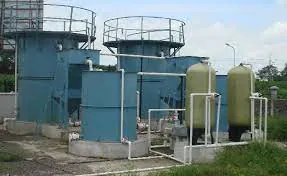Sewage Treatment Plant For Hospitals In Bangalore
Quick Inspection Service Request
Sewage treatment plant for hospital
A S Water Solutions specializes in providing sewage treatment plant (STP) solutions tailored specifically for hospitals. Hospital wastewater contains various contaminants and pathogens that require specialized treatment to ensure compliance with regulatory standards and protect public health. Below, we’ll explore the key components, processes, benefits, and services provided by A S Water Solutions in sewage treatment plant projects for hospitals

Components of Sewage Treatment Plants for Hospitals
- Inlet Reception: Hospital wastewater, including sewage from patient rooms, operating theaters, laboratories, and other medical facilities, enters the treatment plant through inlet works equipped with screens or grates to remove large solids and debris.
- Primary Treatment: Involves the removal of settleable solids, oils, and grease from the wastewater using physical processes such as sedimentation or flotation. Primary clarifiers or settling tanks are commonly used for this purpose.
- Secondary Treatment: Utilizes biological processes to degrade organic matter and remove pathogens from the wastewater. Advanced biological treatment systems such as activated sludge or membrane bioreactors (MBRs) may be employed to achieve high treatment efficiency.
- Tertiary Treatment: Additional treatment processes such as filtration, disinfection, or advanced oxidation may be applied to further polish the effluent and ensure its safety before discharge or reuse.
- Sludge Handling: Involves the treatment and disposal or beneficial reuse of sludge generated during the treatment process. Sludge may undergo processes such as thickening, dewatering, and thermal treatment to reduce volume and stabilize the solids.

Processes Involved in Sewage Treatment for Hospitals
Screening: Removes large objects, such as bandages, gauze, and medical equipment, from the wastewater to prevent damage to downstream equipment.
- Primary Sedimentation: Allows settleable solids and debris to settle out of the wastewater, forming a sludge layer that is removed and treated separately.
- Biological Treatment: Utilizes specialized bacteria and microorganisms to biodegrade organic pollutants, pharmaceuticals, and pathogens present in hospital wastewater.
- Filtration: Removes remaining suspended solids, bacteria, and viruses from the treated effluent using sand, activated carbon, or membrane filters.
- Disinfection: Kills or inactivates remaining pathogens and bacteria in the treated effluent using chemical disinfectants such as chlorine, ultraviolet (UV) irradiation, or ozone.
Services Provided by A S Water Solutions:
Design and Engineering: AS Water Solutions offers customized design and engineering services for STPs tailored to the specific wastewater characteristics, treatment objectives, and regulatory requirements of hospitals.
- Installation and Construction: The company manages the construction, installation, and commissioning of STPs, ensuring quality craftsmanship, compliance with standards, and timely completion.
- Operation and Maintenance: AS Water Solutions provides comprehensive operation and maintenance services to ensure the efficient and reliable performance of STPs in hospitals, including routine inspections, preventive maintenance, troubleshooting, and technical support.
- Compliance Monitoring: The company assists hospitals in monitoring and reporting wastewater quality and compliance with regulatory standards, ensuring adherence to environmental regulations and discharge permits.
Site Inspection
Schedule An Appointment
Benefits of Sewage Treatment Plants for Hospitals
Infection Control: STPs help prevent the spread of infectious diseases by treating hospital wastewater to remove pathogens and contaminants before discharge into the environment
- Regulatory Compliance: Hospitals must comply with stringent regulatory standards for wastewater discharge, and STPs ensure that treated effluent meets or exceeds these requirements.
- Environmental Protection: By treating hospital wastewater, STPs protect water bodies, ecosystems, and public health from pollution and contamination.
- Resource Recovery: Treated sewage can be reused for non-potable purposes such as irrigation, toilet flushing, and cooling, conserving freshwater resources and reducing environmental impact.
Additional Sewage Treatment Plant Services
We Also Offer

